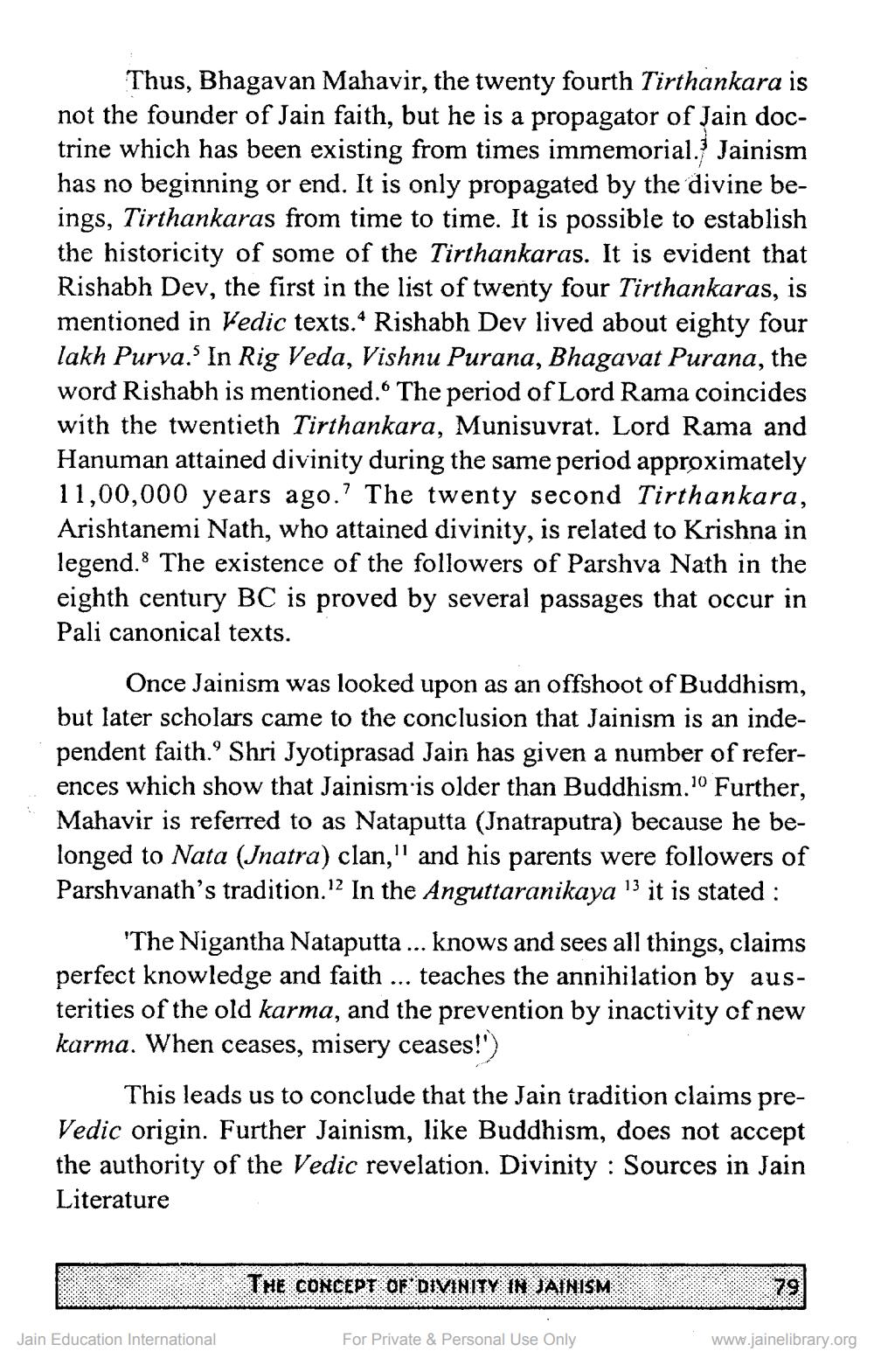________________
Thus, Bhagavan Mahavir, the twenty fourth Tirthänkara is not the founder of Jain faith, but he is a propagator of Jain doctrine which has been existing from times immemorial. Jainism has no beginning or end. It is only propagated by the divine beings, Tirthankaras from time to time. It is possible to establish the historicity of some of the Tirthankaras. It is evident that Rishabh Dev, the first in the list of twenty four Tirthankaras, is mentioned in Pedic texts. Rishabh Dev lived about eighty four lakh Purva. In Rig Veda, Vishnu Purana, Bhagavat Purana, the word Rishabh is mentioned. The period of Lord Rama coincides with the twentieth Tirthankara, Munisuvrat. Lord Rama and Hanuman attained divinity during the same period approximately 11,00,000 years ago. The twenty second Tirthankara, Arishtanemi Nath, who attained divinity, is related to Krishna in legend. The existence of the followers of Parshva Nath in the eighth century BC is proved by several passages that occur in Pali canonical texts.
Once Jainism was looked upon as an offshoot of Buddhism, but later scholars came to the conclusion that Jainism is an independent faith.' Shri Jyotiprasad Jain has given a number of references which show that Jainism is older than Buddhism.10 Further, Mahavir is referred to as Nataputta (Inatraputra) because he belonged to Nata (Inatra) clan," and his parents were followers of Parshvanath's tradition.'2 In the Anguttaranikaya 13 it is stated :
'The Nigantha Nataputta ... knows and sees all things, claims perfect knowledge and faith ... teaches the annihilation by austerities of the old karma, and the prevention by inactivity of new karma. When ceases, misery ceases!')
This leads us to conclude that the Jain tradition claims preVedic origin. Further Jainism, like Buddhism, does not accept the authority of the Vedic revelation. Divinity : Sources in Jain Literature
THE CONCEPT OF DIVINITY IN JAINISM
7
9
Jain Education International
For Private & Personal Use Only
www.jainelibrary.org




